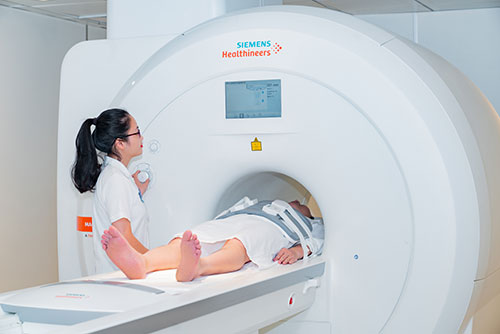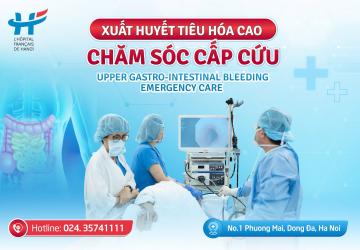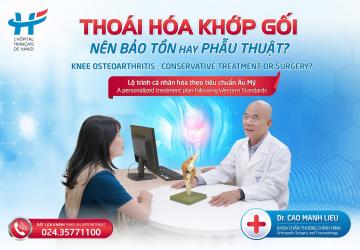News - Thu, 12/19/2019 - 17:53
HFH’s new Siemen 1.5 Tesla MRI
Last update 09/27/2024 - 17:58

In the new, world-class hospital facility, Hanoi French Hospital now can offer you MRI examinations with the new 1.5 Tesla Magnetom Sempra model from Siemens Healthcare to ensure optimal diagnosis with improved patient experience.
Magnetic resonance imaging (MRI) of the body uses a powerful magnetic field, radio waves and a computer to produce detailed pictures of the inside of your body. It may be used to help diagnose or monitor treatment for a variety of conditions within the brain, chest, abdomen and pelvis. If you’re pregnant, body MRI may be used to safely examine you or monitor your baby.
What is a MRI of the Body?
MRI is a noninvasive medical test that doctors use to diagnose medical conditions. It produces detailed pictures of organs, soft tissues, bone and virtually all other internal body structures. MRI does not use ionizing radiation (x-rays) and for that reason it is safe to examine children and pregnant women.
MRI allows doctors to evaluate various parts of the body
Detailed MRI images allow doctors to evaluate various parts of the body and determine the presence of certain conditions and diseases. The images can then be examined on a computer monitor, transmitted electronically, printed or copied to a CD or uploaded to a digital cloud server.
What are some common uses of a MRI?
Evaluation of, but not limited to:
- organs of the chest and abdomen—including the heart, breasts, liver, biliary tract, kidneys, spleen, bowel, pancreas, and adrenal glands.
- pelvic organs including the bladder and the reproductive organs such as the uterus and ovaries in females and the prostate in males.
- blood vessels (including MR Angiography).
- lymph nodes.
- Bones, joints, ligaments and soft tissue
- Spinal cord and intervertebral discs
- Brain and the skull
Doctors may prescribe an MRI to help diagnose or monitor treatment progress for:
- diseases and conditions of the chest, abdomen or pelvis.
- diseases of the liver, such as cirrhosis, and abnormalities of the bile ducts and pancreas.
- diseases of the bowels such as abnormalities of the guts, inflammatory bowel disease, appendicitis, tumors, and obstructions.
- heart problems, such as congenital heart disease.
- malformations or inflammation of blood vessels (vasculitis), clogged or calcified blood vessels.
- orthopedic conditions and injuries
- neurological conditions, nerve injuries, multiple sclerosis, brain damage, stroke
- a baby in the womb of a pregnant woman.
What does the equipment look like?
A traditional MRI unit is a large cylinder-shaped tube surrounded by a circular magnet. You will lie on a moveable examination table that slides into the center of the magnet.
The new 1.5 Tesla Magnetom Sempra model from Siemens Healthcare represents the top of the range in MRI technology available on the market. Some MRI Units can be quite noisy, the Magnetom Sempra provides extra quiet exams and more space to increase patient comfort. Enhanced protocols and technology allow for reduced examination time whilst guaranteeing excellent quality images for accurate diagnosis.

HFH’s new Siemen MRI Sempra 1.5 Tesla
Diagnostic MRI examinations in children can be very challenging for the child and the doctor. Siemens' trendsetting solutions help overcome many of these challenges to enable high-quality, high-resolution, diagnostic imaging of all body regions while keeping your child as comfortable as possible.
With the addition of our new MRI, HFH offers the whole range of top quality and safe diagnostic imaging modalities for routine and emergency medical and surgical conditions for the entire family in the new hospital building.
Hanoi French Hospital - No. 1 Phuong Mai, Dong Da, Hanoi
Telephone: (84-24) 3577 1100



